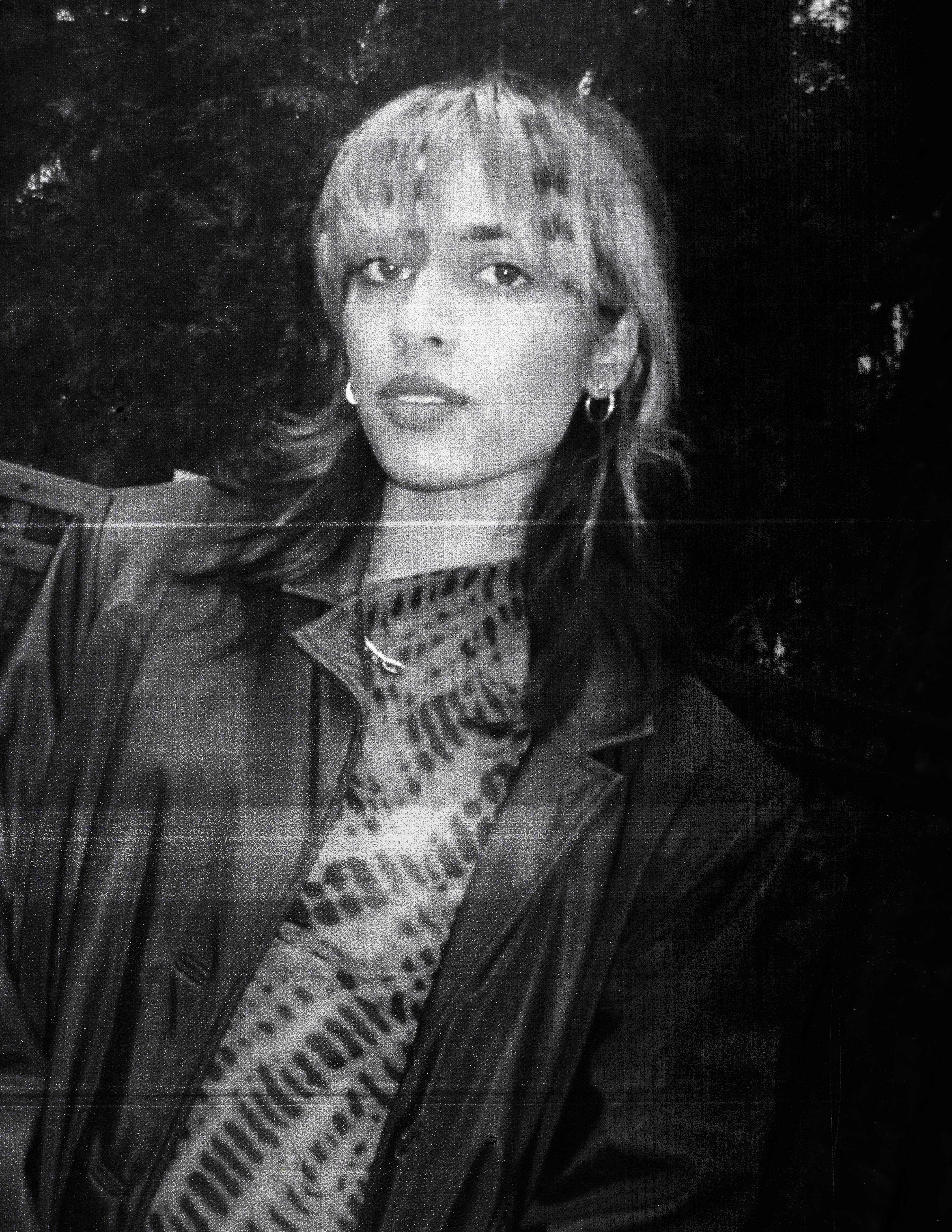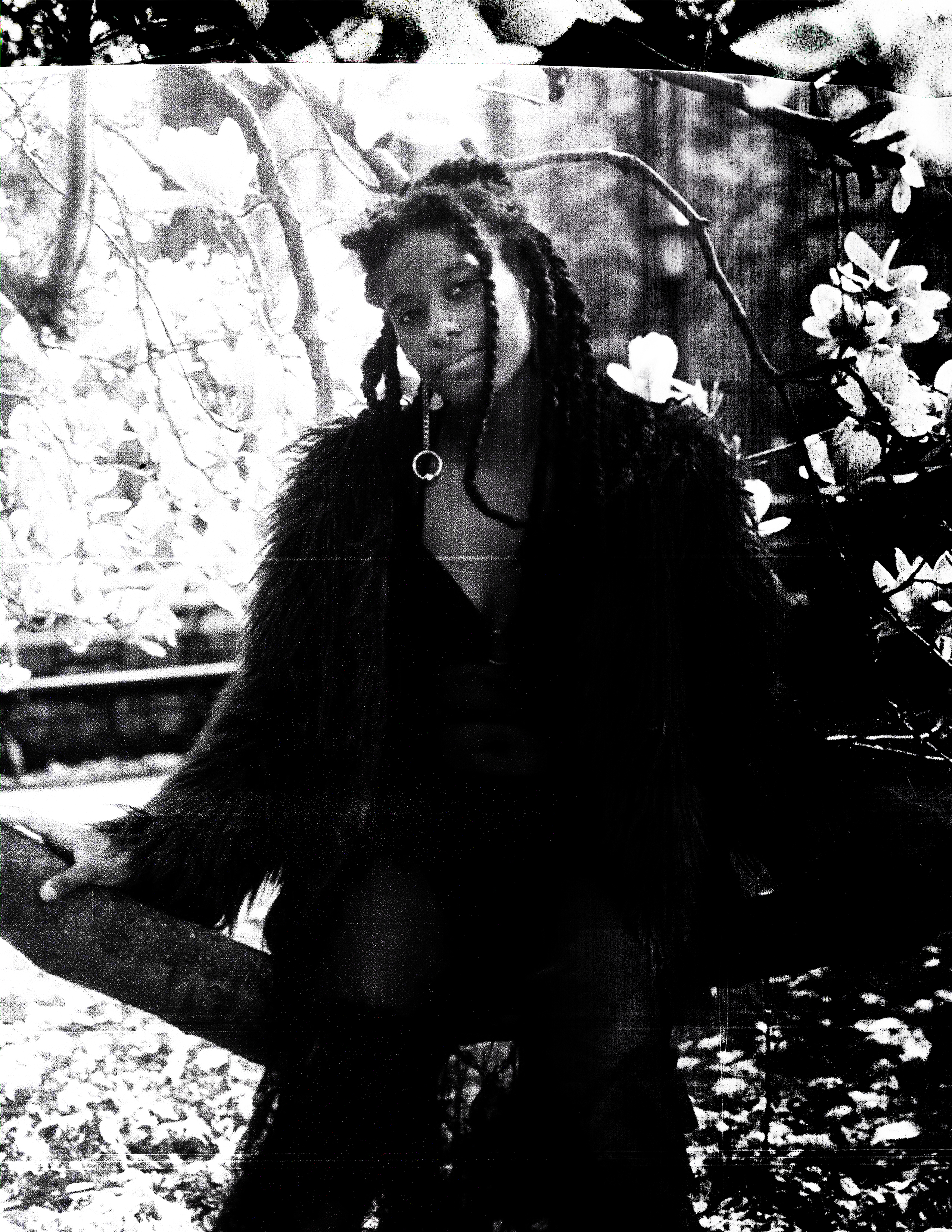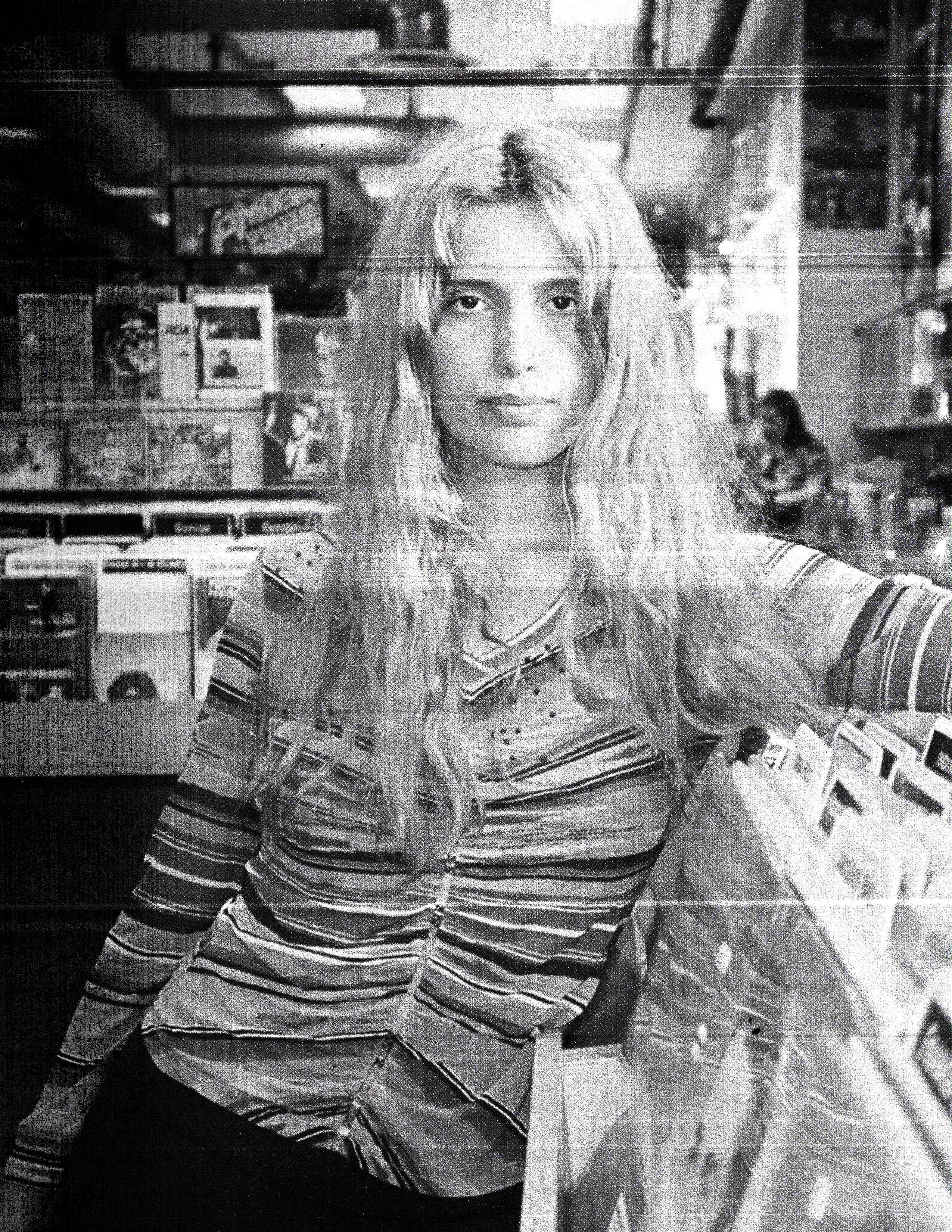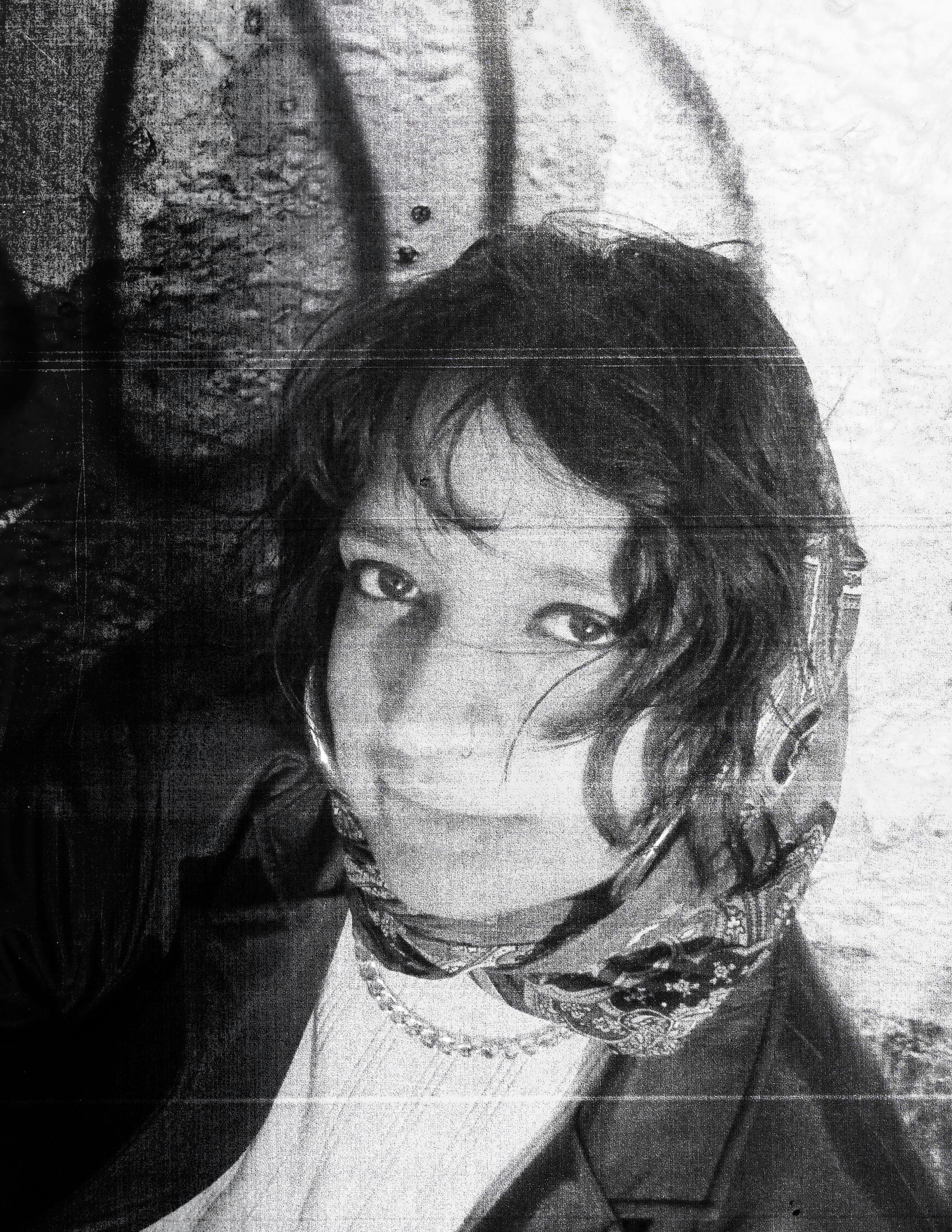GATEBREAKING
MANIFESTO
In Conversation with Cy X, Josephine Shetty, Meenakshi Parashar, + Pauli Cakes
by Sonia Kiran (Raver Jinn)
Defining Gatebreaking
Gatebreaking is the opposite of gatekeeping. This can look like teaching people your skills and cheat codes, sharing as many material and informational resources as possible, or unraveling barriers and hierarchies within spaces you inhabit. Some examples are below:
Download this template to explore your own gatebreaking fantasies.
Self-publishing, sharing unfinished and unedited work
Sharing research and theory on free platforms that are accessible outside of academic institutions, like Tiktok and Twitter
Distributing food for free
Creating transparency around pay rate, and sharing what you charge for specific services
Crowd-sourcing data and research on disparities within your field or community
Sharing music venue booking contacts
Teaching people new softwares, hardwares, instruments, tools, and mediums
Being someone’s guarantor or job reference
Creating seed libraries and art equipment libraries
Holding the subway station exit door open for entry or sharing a swipe
Sharing communal studio spaces for free or low-cost
Sharing streaming and Adobe logins, workspace memberships, software licenses
Hiring without a portfolio or resume and training on the job instead
Archiving digital resources for your community – perhaps sample artist contracts, mental health and legal services, translation services, guides on organizing an event, or tutorials for new skills
Constructing spaces to make them more comfortable for disabled and chronically ill people
Artists drafting contracts with their own desired payment times, stipulations, etc., instead of solely signing and accommodating client contracts
Gatebreaking has also historically looked like prison abolition, strikes and uprisings, whistleblowing, oral history and knowledge-sharing in all its forms, accessible healthcare, education, and social services, translation and ASL (american sign language) interpretation, centering survivors, and disability justice measures

Raver Jinn
Graphic Designer, DJ, Producer
"Comfort is about expanding into the edges of yourself and your surroundings, slowing down, and honoring the abundance of knowledge within and around you. What comes to mind when you envision maximum comfort?"
If you’ve ever received bodywork (perhaps a massage, cupping, or acupuncture) you may have experienced a heightened awareness post-session of muscle tension creeping back in. Maybe you realized some of your daily movements and interactions were in fact sources of tension. Bodywork, like any healing modality or shift in pace, allows us to better measure our somatic states across familiar surroundings.
Over the last few years, as lockdown induced global deceleration and covid-capitalism charged on, I witnessed myself and my friends developing a similar sense of friction as we moved between stillness, grief, and survival. Specifically, I noticed a more acute awareness of isolation and burnout within ourselves, and structural barriers within our industries and communities. Every time we slowed down, the speed of life around us felt more dissonant.
People within and outside of creative industries increasingly speak of being stuck in “survival mode”, of being unable to prioritize rest and deprioritize production, unless our bodies bring us to a grinding halt. Burnout erodes our sense of self, and we become prone to comparison and jealousy. Burnout is also deeply isolating and has compounded the physical isolation we’ve experienced throughout the pandemic. Prolonged isolation, in turn, has restructured all the ways we relate and commune.
Even now, living in a dense city with a near-infinite possibility for connection, I am obviously not immune to isolation. I notice that all intimacies and kinships must be tended very actively and intentionally in order to last, across digital and offline spaces. It doesn’t come easy – early on I’d go to clubs chasing my fantasies to feel calm, to feel euphoric, to feel desire. Some nights would be so beautiful and surreal they’d entirely shift how I approach organizing, pleasure, and safety. Other nights I’d instead find the ground turning into quicksand underfoot, feeling the ache of alienation. For me, the club is less a space of deep presence and more often one of disassociation – which can be a balm in its own way.
For the past two years as our surroundings warped around us, we all quietly watched many of our fantasies wither, coping with heartbreak in private. I imagine us all as sea sponges absorbing everything our environments offer us, from data to nutrients to emotions to resources. When we are severed from our environments we become saturated with capitalist messaging, with each isolating influence causing us to contract further.
Examining these crises of pace, selfhood, and relation reveals Darwin’s “survival of the fittest'' theory as one of several precursors to modern capitalism. In the 1850s Darwin’s theory positioning competition as the crux of life was translated to sociology, politics, and economics as Social Darwinism, from which modern capitalism emerged in the 19th century. Social Darwinism was also employed to justify eugenics, facism, and authoritarian regimes around the world. Survival of the fittest ideology rears its head in so many of our social relations, from CDC messaging surrounding the COVID-19 pandemic, to education access, to food distribution, to (yes) music and creative fields.
Searching for antidotes to isolation, competition, and burnout guided me to the natural world – specifically mycology – for answers. In Merlin Sheldrake’s mycology book “Engangled Life: How Fungi Make Our Worlds, Change Our Minds & Shape Our Futures”, he summarizes a study offering the term “‘involution… [i.e.] rolling, curling, turning inward’”, as an alternative to “evolution”. Involution dislodges Darwin's theory as the dominant understanding of life over time, instead suggesting that life on earth has solely persisted through all lifeforms becoming more enmeshed and symbiotic.
If gatekeeping is survival of the fittest ideology internalized and imbued into our social relations, then socialism, mutual aid, and abolition might emerge on the flip side as political equivalents of involution. Gatebreaking then, could be a more accessible umbrella term for interpersonal involution and enmeshing, or simply the opposite of gatekeeping. So teaching people all your skills and cheat codes, sharing as many material and informational resources as possible, and unraveling barriers and hierarchies within a space you inhabit.
Sharing this idea of gatebreaking online, I half-jokingly made a style mood board for gatebreakers that featured comfortable, durable garments, including hiking clogs, a puffer skirt, and a fuzzy multicolored scarf-hat. Ultimately, what anyone chooses to wear when they’re gatebreaking is unimportant, but I do believe that individual and communal comfort lies at the heart of gatebreaking. I want nightlife and gathering spaces to have more seating and snacks, bodywork stations, safe ride funds, and harm reduction measures (including earplugs, condoms, and safer substance supplies like narcan, fentanyl testing strips, and cup condoms to prevent drink spiking). All of this has been done before for free or with minimal fundraising, and can be prioritized at any moment. Comfort is about expanding into the edges of yourself and your surroundings, slowing down, and honoring the abundance of knowledge within and around you. What comes to mind when you envision maximum comfort?
On a personal level, one specific event foreshadowed and shaped my thoughts surrounding gatebreaking. Last year I was on my way to a DJ set while managing seasonal chronic pain and needed urgent relief. I ducked into a CVS and iced my hands with a few foil-wrapped ice cream sandwiches for 40 minutes, stressed enough that I entirely disregarded what other shoppers were thinking, and lost sight of the fact that I was late to my set. I realized then how chronic pain encourages improvisation and innovation beyond the prescriptions of traditional Western medicine, creates fissures within capitalism, and can encourage slowness. When I look back on that brief moment of prioritizing my own comfort, I think of all I have yet to learn from disability justice and chronic pain communities on gatebreaking and access. I dream of ways we – particularly visual artists, graphic designers, and coders – can better circulate non traditional knowledge and healing tools hidden in plain sight.
As the new year provides space to parse collective isolation, grief, burnout, and internalized capitalism, and clears the ground for new collective fantasies, I hope we can resource each other towards maximum comfort. Whether we label it gatebreaking or not, you’ll always fall closer in orbit to those reaching towards you, guiding you to a more easeful, interconnected, comfortable world where knowledge and resources flow just as emotions do. Online and offline, interpersonally and intergenerationally, not staying confined within one body.
Over the past few years I have witnessed and been rescued by gatebreaking time and time again, and am lucky to be surrounded by people who embody gatebreaking through their work. I got the chance to speak with four organizer and artist friends, Cy X, Pauli Cakes, Josephine Shetty, and Meenakshi Parashar about their gatebreaking hurdles, blueprints, and fantasies:

Cy X
Co-Founder of Synth Library NYC
"What’s been moving for me, is seeing just how actually easy gatebreaking can be once you wholeheartedly commit and check any ego or capitalist-bred teachings surrounding competition and hoarding."
Synth Library NYC was started by me and musician Heidi Sabertooth. It was born from the ethos of gatebreaking and from the radical act to move beyond the limits of private property where only a select few are able to afford and own synthesizers and other electronic music equipment. With the library, we have collected an assortment of different equipment that others can check out and bring within their homespace or studio space for personal use. The library is free with option to donate to assist with any costs around website maintenance, equipment repairs, cables, chords, etc. We wanted to imagine something different - a new model where people could feel nourished, excited, and easily able to explore their relationship to sound. The library has felt like one way to do that and we also curate educational resources and host different workshops and community events.
What’s been moving for me, is seeing just how actually easy gatebreaking can be once you wholeheartedly commit and check any ego or capitalist-bred teachings surrounding competition and hoarding. It’s really about sharing the resources around you and moving from a place of trust, curiosity, and care. Although Synth Library NYC is one model of doing that, we all could do our own versions of that with our own gear, books, art supplies, cameras, etc.

Pauli Cakes
Founder of @xcakesnyc, dj, creator, organizer + more
"I dream of a future that can exist without the presence of punitive enforcement, such as prisons and detention centers. I dream of a future rooted in community care, universal income that generates financial stability for all, affordable housing, free schools that teach self-sustaining practices such as farming, permaculture, therapy, holistic medicine and more."
We are taught to normalize and internalize this idea of one-ness, being self made and only caring for ourselves. This sort of “mono-culture”, at its core, only pushes us farther from growth. For example, if we look at the way capitalism and facism effects our soil we see big agricultural industrial companies using monsanto and chemicals which work against natural ecological processes, eradicating bio-diversity and privatizing the land in the name of mass production. We are taught to think like killing machines, opposed to thinking like the water, air and trees which are the very root of our existence. When we see crops, gardens and eco-systems flourish in their natural state, without the impending presence of capitalism we see fruit bearing trees and fungi nourishing the soil. We see binaries being broken, flaura flourishing and a mutual state of symbiosis, the way the earth is intended to be. I believe this ideology can be applied to aspects of every ecosystem. To that end, the roots of our movements can stay present and multiply with strength, and we can pass down knowledge from the source.
When I think of gate breaking, I envision our current society plummeting and being built up and replenished with a harmonious ecosystem rooted in love, solution, compassion, justice and patience. I dream of a future that can exist without the presence of punitive enforcement, such as prisons and detention centers. I dream of a future rooted in community care, universal income that generates financial stability for all, affordable housing, free schools that teach self-sustaining practices such as farming, permaculture, therapy, holistic medicine and more. On a more attainable scale, by sharing resources, wealth and information we have direct access to without capitalizing off it first, we can create a culture around gatebreaking. This can be as easy as sharing what you learned in school on an open source document or creating a redistribution fund that aids those in need. An example of how I’ve been able to engage in gate breaking culture through collective care is by creating a mutual aid fund for folks affected by the Omicron spike in NYC. While the government was denying the effectiveness of supplements such as Vitamin C and Echinacea, I was able to send out over 150 care packages through raising funds. Where we see absence in care we must go in and take charge to take care of our community, because if not us, then who? We can not learn without being taught, we can’t receive love if we do not give it and vice-versa, at the root of everything is the ecology of care.

Josephine Shetty
Musician, audio engineer, music educator
"Confronting structural access barriers doesn’t necessarily address larger structural inequities, like who holds most of the institutional power..."
From exclusive and expensive music education to labels, distributors, agents, managers, and so on, there’s access barriers built into every corner of the music industry’s infrastructure. Even the extensive history of labor organizing within music history is fraught with respectability, racism, and xenophobia, as most of America’s earliest music worker-organizers were white male classical musicians who sought to exclude Black American and migrant musicians from their workers’ rights initiatives.
The Internet and digital music technology have provided a sort of democratization of the means of production. Artists can now record and produce from home with DAWs, virtual instruments, and microphones readily available on our laptops. We can distribute our work on a variety of sites for free or at a relatively low cost, and we can promote our work on social platforms. However, I think it’s important to remember that giving people the tools needed to take part in a certain field or practice only empowers us to a limited extent and could play into a neoliberal performance of accessibility and diversity. Confronting structural access barriers doesn’t necessarily address larger structural inequities, like who holds most of the institutional power, which in the music industry is more consolidated than ever in the hands of a few executives, and why those people continue to hold power, despite how much technology is at the masses’ fingertips.
In my anti-capitalist dream world, there wouldn’t be industries of any kind, including ones for music. There would be no products to pump out, musical or otherwise, for a hive consumership to purchase and subsequently stuff the pockets of industry executives. Because everyone’s basic needs are met in this vision, people could make art for pleasure rather than money. Anyone would feel empowered to identify as an artist, and artists would have more freedom to align their practices with their truest desires for expression, creation, distribution, and engagement, completely outside of the industrial imagination. Success and manifestation would look different than we popularly know them to be in this context, but I still think art would be very fun and glamorous in an entirely new and liberated sense of the words! I think achieving this vision would involve many abolitionist efforts, including a mass workers’ movement, not exclusive to the music industry but involving all of the world’s workers bound to and by the global capitalist imperialist system. This movement could start as small or big as anyone has capacity for, including many of the gatebreaking examples listed above.
One example of resource sharing that I am currently working on is building a trade cooperative for vocal lessons where singers can rotate leading lessons for each other, so they can all access free, regular vocal practice, as well as the feedback, camaraderie, and breadth of perspective offered by a group of singer peers! As an audio engineer, I also aspire to share my knowledge and services as abundantly as I have capacity for. My rate is relatively flexible, and I am open to working for trade in many cases. I can also adjust my services to accommodate a client’s need and budget, like consulting and advising on a musician’s mix rather than acting as the lead engineer. I truly just enjoy building mutually nourishing connections with other artists, so a big part of my journey in this industry is to find ways to keep my projects and interactions genuine, fun, sustainable, and aligned with my vision for the world.
Meenakshi Parashar
Organizer at Feed The People Bedstuy

Mutual aid is unconditional, it is not charity, and it is not a non-profit. It exists outside of hierarchical systems, systems which oftentimes view help as a form of debt and power as something that’s concentrated at the top.
I am an organizer to my very core and my concept of gatebreaking operates from the foundation of mutual aid. Mutual aid is unconditional, it is not charity, and it is not a non-profit. It exists outside of hierarchical systems, systems which oftentimes view help as a form of debt and power as something that’s concentrated at the top.
Back in 2020 when COVID-19 was first booming, my friends and I immediately got to thinking: what is something we can do? What are resources we have that we have an excess of and have the ability to share? We narrowed it down to a list of free services we could offer to our neighbors:
1. Babysitting services since our jobs were now remote and we had a lot more time at home. This was especially helpful if our neighbors were essential workers and still going into work and schools/daycares were closed or even if they were busy working from home and didn’t have the bandwidth to look after their kids.
2. Picking up groceries and medicine for neighbors. For us, this was a very low lift task since we were comfortable with going to stores so why not offer to pick up necessary items for neighbors who couldn’t leave their homes? We were already in the stores to begin with.
3. Cooking free meals for people.
4. We also offered blank flyers to folks who had different types of resources available that they could offer ex. transportation if someone had a car, legal aid, etc. This way, it wasn’t a strict model of the kind of help that was being offered.
We advertised with flyers, social media, word of mouth, and eventually started making meals through Feed The People - BedStuy. We started cooking meals in our tiny apartment kitchen with the additional support of people in the community who stepped up to redistribute their resources. Over time, we started receiving donations from people who had excess groceries, cutlery, cooking tools, takeout boxes, and eventually got offered a kitchen space, that we still utilize to this day, to cook out of. As the scope grew, so did the amount of people who were willing to offer their time and resources. People signed up to cook, deliver food, clean, provide supplies, all for mutual aid. This has allowed us to provide hot meals to various food serves and jail support efforts with tens of thousands of meals made since 2020. But the work doesn’t stop there.
Mutual aid and gatebreaking go hand in hand and I take the lessons and experiences I have gained with me wherever I go. For example, my day job is working at a nonprofit that helps previously incarcerated individuals find employment. While it is extremely impactful work, the organization still exists within the framework of nonprofit hierarchical structures. I remain critical of this structure, but have still taken many lessons from this job that I see as examples of gatebreaking:
1. Transparency in wages and organizational structure. This results in more trust in the organization because people know how the program works from the inside.
2. Resource distribution. Our direct service workers always provide local, community based resources for clients, whether it’s financial assistance, transportation assistance, resume writing workshops, etc.
3. Internal resource sharing. Our organizational background is diverse and I’m often learning from other social workers, direct service workers, and organizers around me. Because of our unique experiences, we share tools and techniques and foster a learning community.
4. Hiring without resumes and cover letters
I constantly ask myself how I can bake gatebreaking into my daily life. Do I have a structure in place for distributing my disposable income? Do I have a day or two during the week (or even a couple hours here and there) where I can get involved in community-centric work? Am I talking to my neighbors and staying tapped into what’s going on locally? Am I taking the time to talk to my unhoused neighbors and getting to know them? Can I make extra portions of my lunch and bring the rest to a food serve or a community fridge? My aide is not a gift, it is a right. I am providing a resource that was always someone’s right to access.
This is all that mutual aid is; it’s an honest analysis of what you already have and how you can make that internal well an external resource. At the end of the day, it’s normal people stepping up to help. We are not saviors, we are not special, and the core of our mentality comes from decentralizing power. You do not have to be an organizer or a social worker or a specialist to be a gatebreaker. It’s about keeping your ear to the ground and as connected to your immediate community as much as possible. People are always speaking. It’s up to us to listen and act.
—
To summarize, the gatebreaking examples I have observed and ones that I strive for are:
1. Free meals
2. Jail support
3. Transportation assistance
4. Offering time as a resource. For example, helping a local mutual aid group organize their donated materials. Even offering an hour of time to assist.
5. Professional aide if you are an expert in a field
6. Communal spaces (like the kitchen we operate out of)
7. Resource distribution. What do you have already that someone else might be in need of? How can this distribution be baked into your livelihood? It can be tangible resources or financial distribution. Do you have a plan on how you give?
8. Skill-based resource distribution. Providing training on certain skills to create a shared knowledge base.
9. Power sharing. Placing marginalized communities at the center of a practice. Getting feedback. Asking people what their need is instead of assuming what they need.
